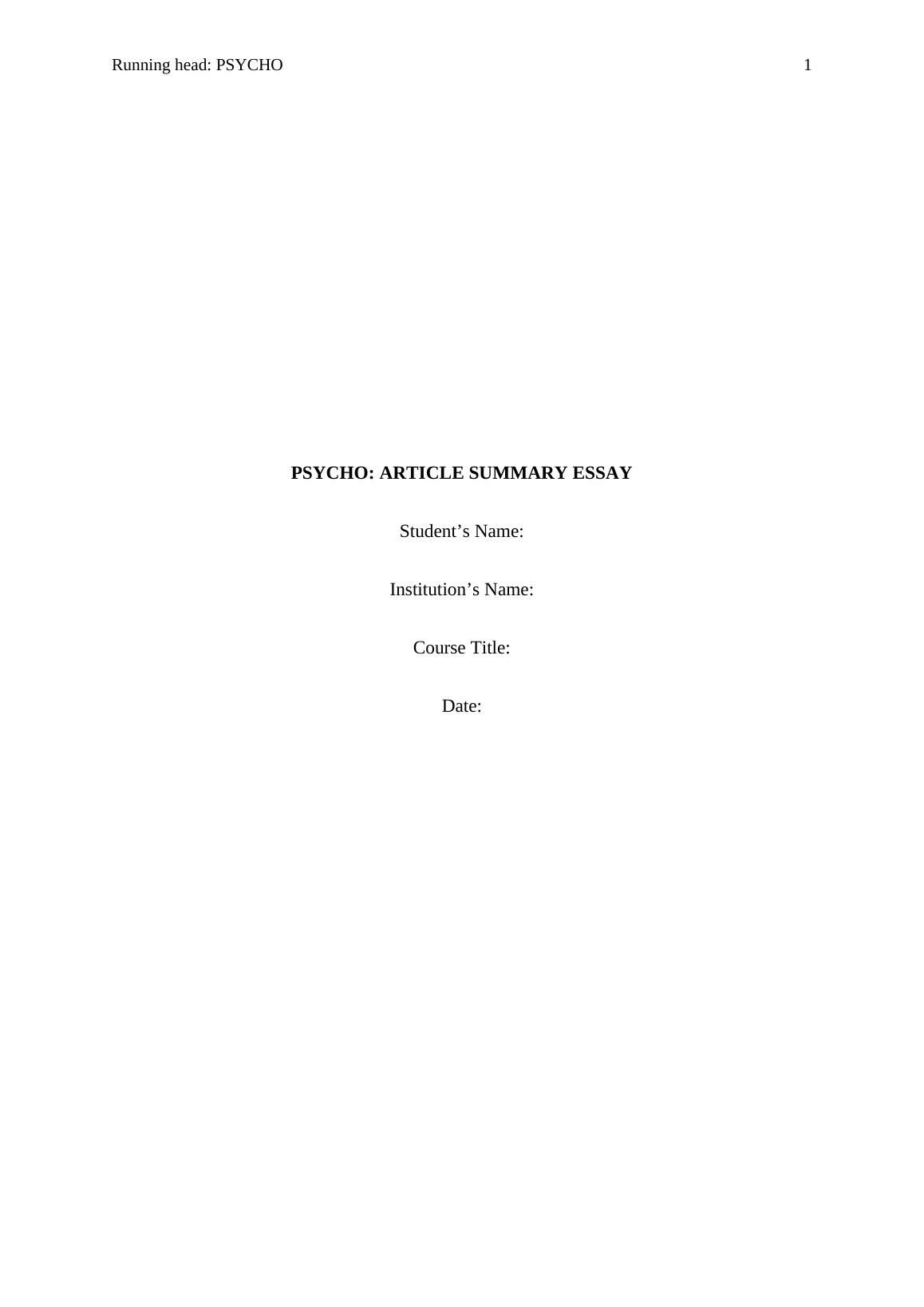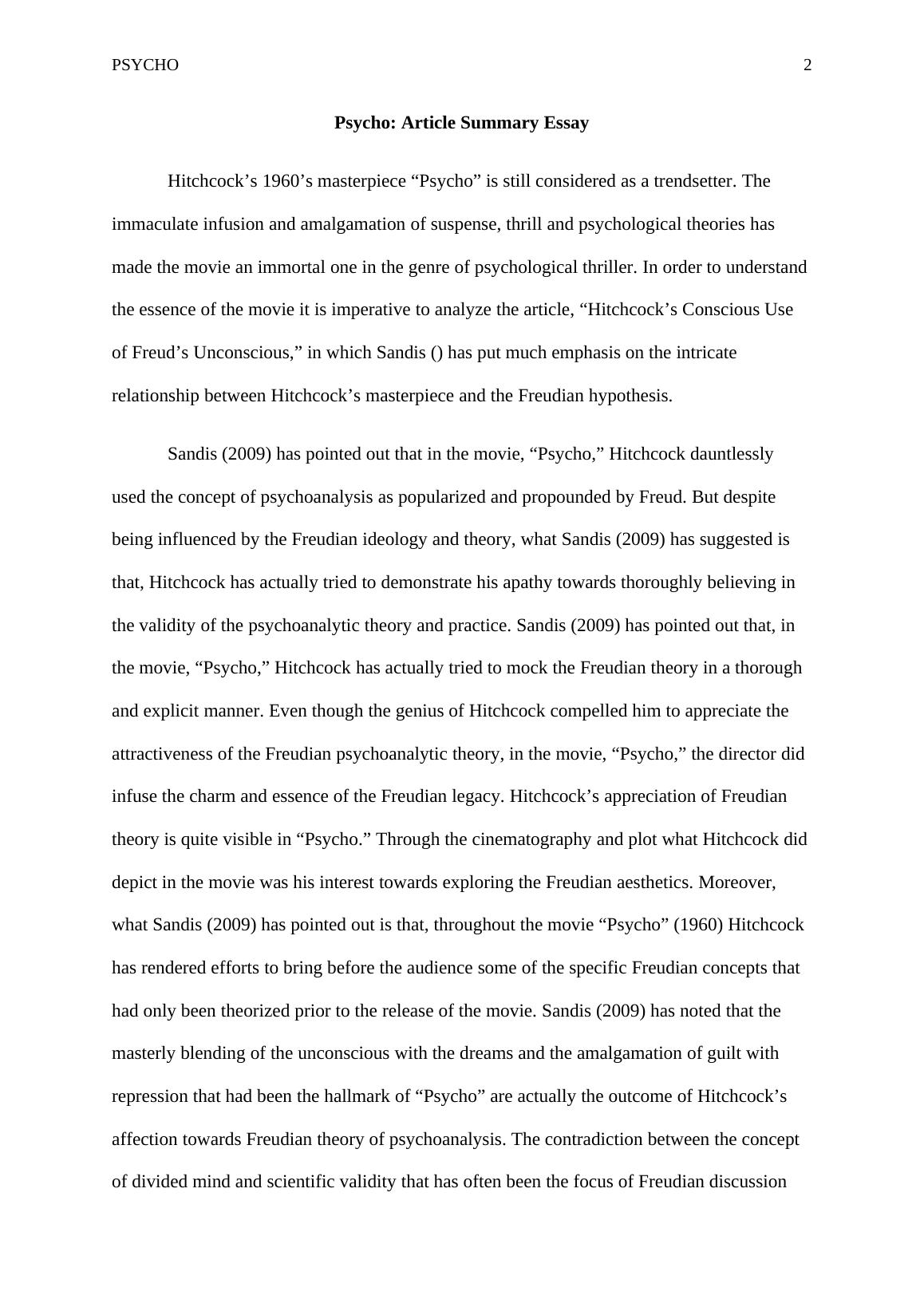Ask a question from expert
Psycho: Article Summary Essay
5 Pages972 Words366 Views
Added on 2019-09-16
About This Document
This essay analyzes the article 'Hitchcock's Conscious Use of Freud's Unconscious' by Sandis (2009), which discusses the relationship between Hitchcock's masterpiece 'Psycho' and Freudian theory. The article suggests that while Hitchcock was influenced by Freud, he also mocked the psychoanalytic theory in the movie. Sandis highlights Hitchcock's personal skills in creating a psychological thriller without depending on any single theory of psychology. The article also discusses how Hitchcock used both fictional and factual accounts to develop the movie.
Psycho: Article Summary Essay
Added on 2019-09-16
BookmarkShareRelated Documents
End of preview
Want to access all the pages? Upload your documents or become a member.

